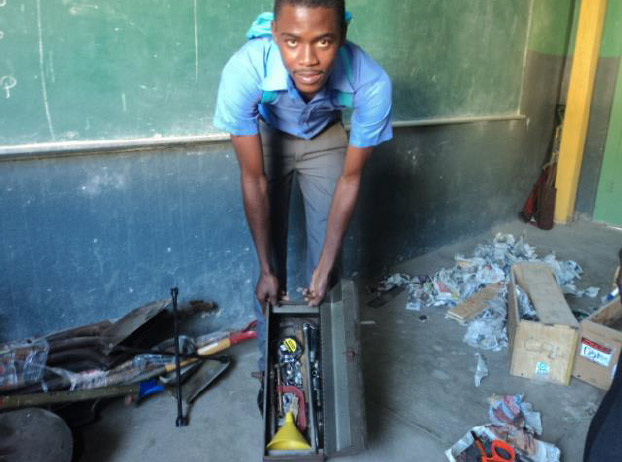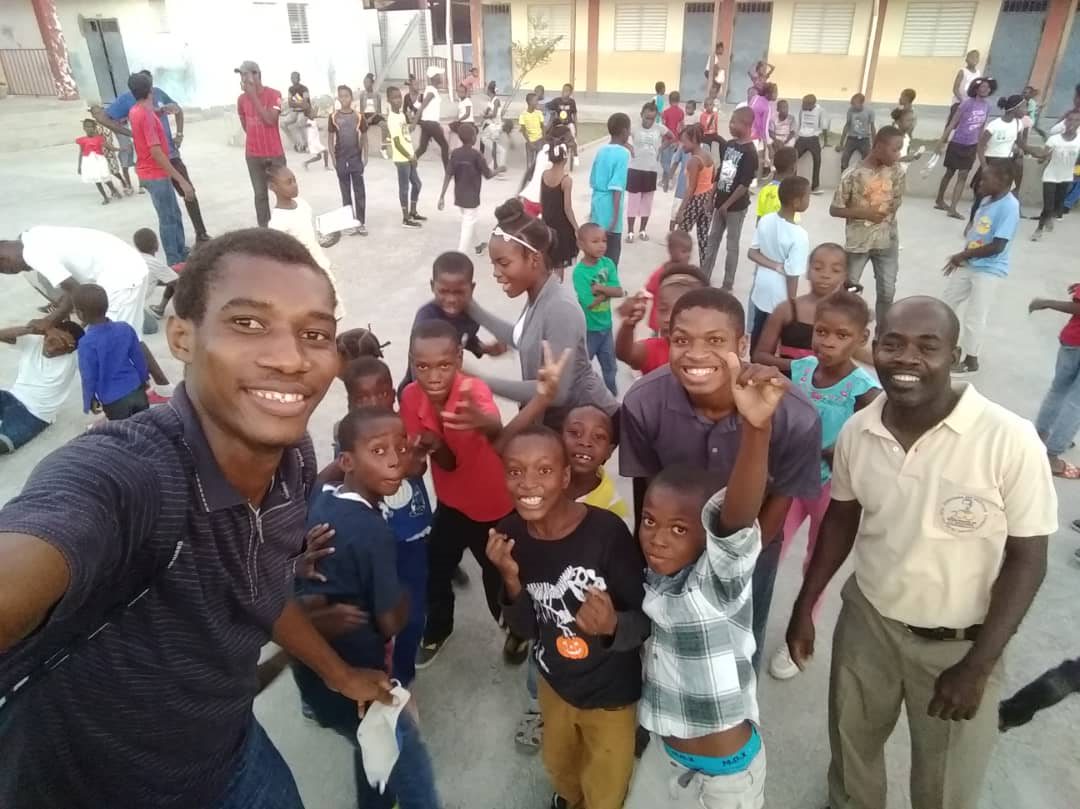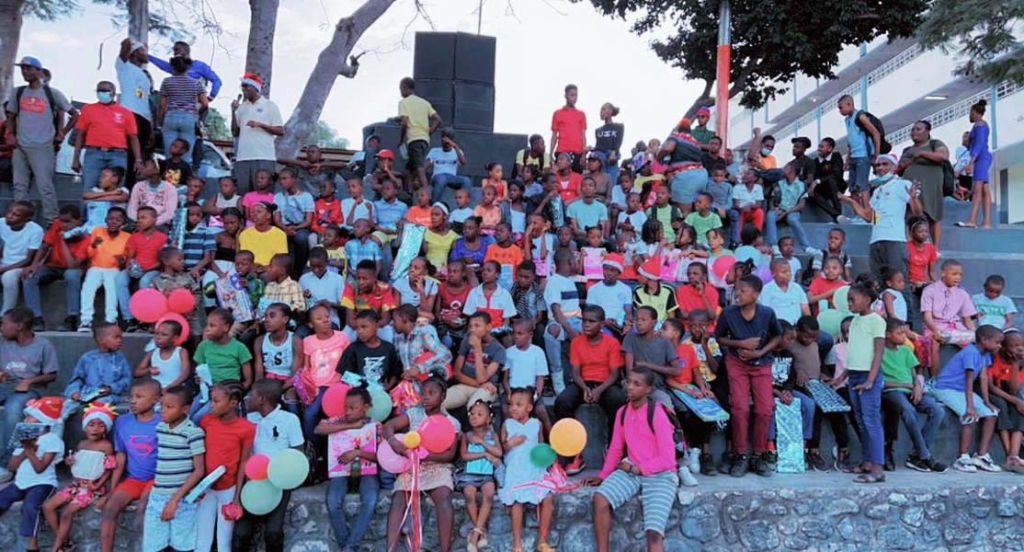HAITI: More than 230 Salesian Graduates Receive Workforce Readiness Tool Kits

(MissionNewswire) In 2015, more than 230 graduates of Salesian professional training schools in Fort-Liberté, Cap-Haitien, Cays and Port-au-Prince, Haiti received tool kits after successful completion of training programs thanks to a recent partnership between Salesian Missions and A Self-Help Assistance Program (ASAP). ASAP has helped thousands of families improve their own lives by providing skills, knowledge and tool kits to students in need.
ASAP accepts tool donations at its Peachtree City, Georgia location and then utilizes volunteers to help refurbish and package the tools, both new and used. From there, the tool kits are sent to Salesian vocational training programs in Haiti to help graduates prepare for future work.
Tools are expensive and students graduating from carpentry, electrical, plumbing, auto repair and other similar training programs need tools in order to retain stable employment. The tool kits provided by ASAP are vital for those students who can’t afford to buy the tools they need for work.
“The partnership with ASAP has helped Haitian graduates gain employment and break the cycle of poverty,” says Father Mark Hyde, executive director of Salesian Missions, the U.S. development arm of the Salesians of Don Bosco. “Many Salesian students do not have the financial resources to purchase the tools of their trade and find it challenging after graduation to be fully ready for the workforce. This donation will prepare students for that next step and make them more employable.”
Haiti’s educational system is continuing to rebuild after a January 2010 earthquake destroyed 90 percent of schools and 60 percent of hospitals, killed thousands of people and left more than 350,000 injured. In 2012, more than 3 million children were able to return to school with more than 200,000 students educated in Salesian-run institutions.
Despite ongoing reconstruction and infrastructure improvements, Haiti remains the poorest country in the Americas and one of the poorest in the world. According to the World Bank, over half of the country’s population of 10 million lives on less than $1 per day and approximately 80 percent live on less than $2 per day. The majority of Haitians lack adequate access to education, healthcare and nutritious food.
Salesian schools in Haiti fulfill an important socio-economic mission by providing poor youth a foundation for lifelong learning through education and training in skills and trades to help them escape poverty and establish a sustainable livelihood.
Salesian-run technical and vocational training centers are operated throughout Haiti. Those in Port-au-Prince and its surrounding villages offer courses in a variety of professional fields such as catering, woodworking, agriculture and hotel management. Additional centers in Fort Liberté and Cap-Haitien specialize in the fields of health, agriculture, information technology, electricity and hotel management. All of these centers, as well as other Salesian-run programs in the country, focus on providing youth with the educational opportunities and social support they need to succeed.
“We are constantly looking for ways to improve education and workforce development for youth,” adds Fr. Hyde. “We accomplish this by improving the skill and capacity of professionals in existing programs and helping graduates overcome obstacles to entering the workforce.”
###
Sources:
A Self-Help Assistance Program
World Bank – Haiti




